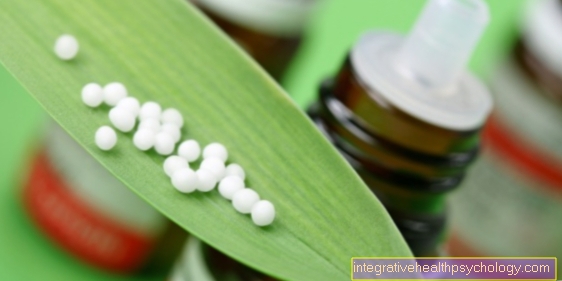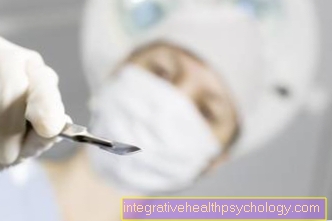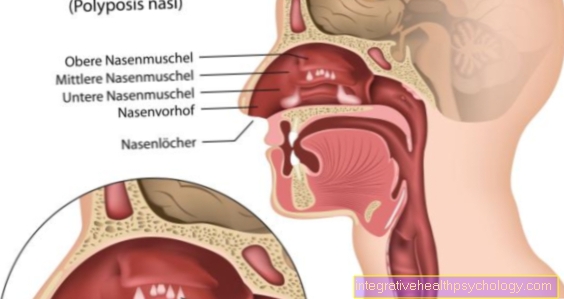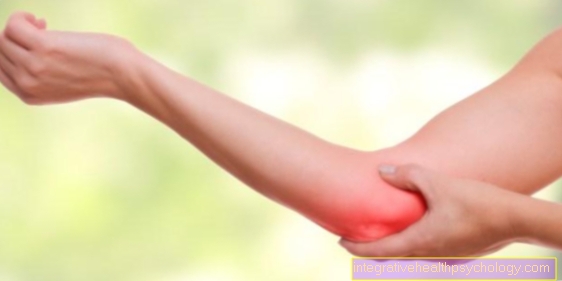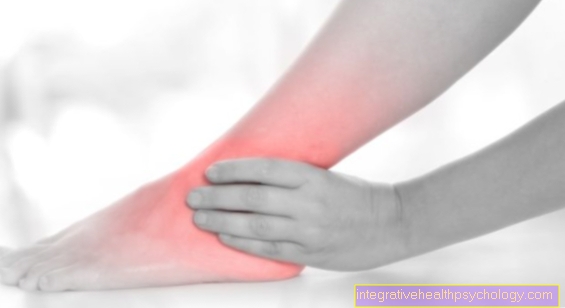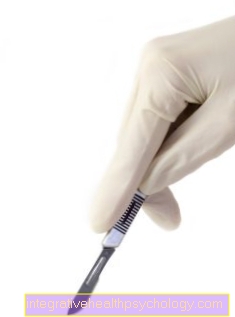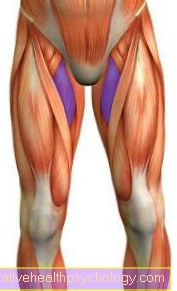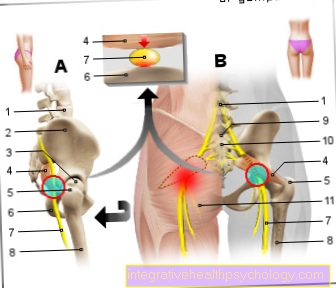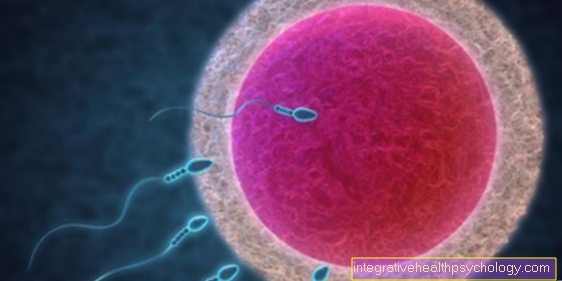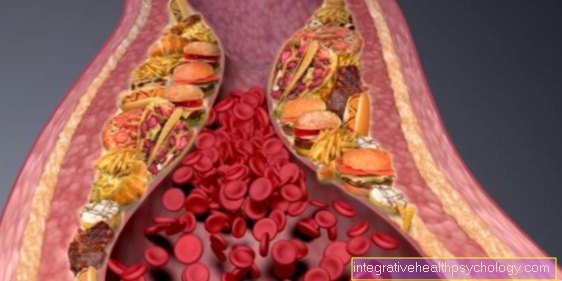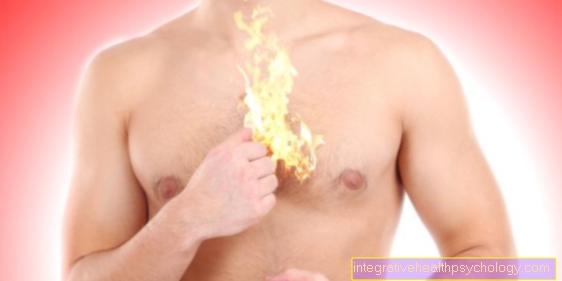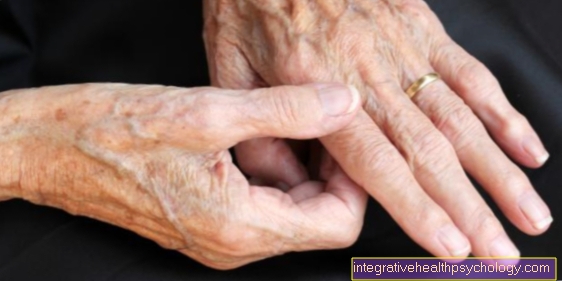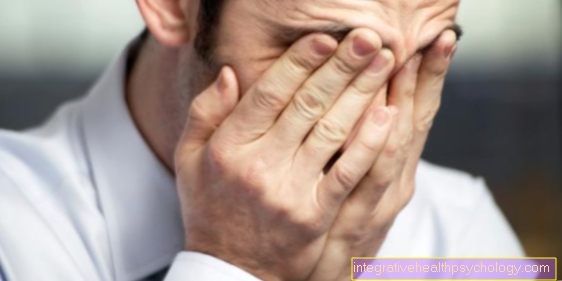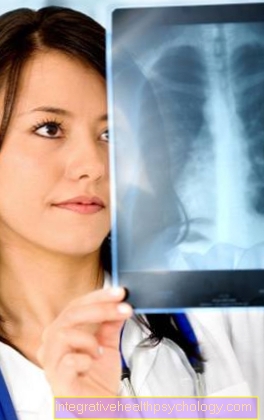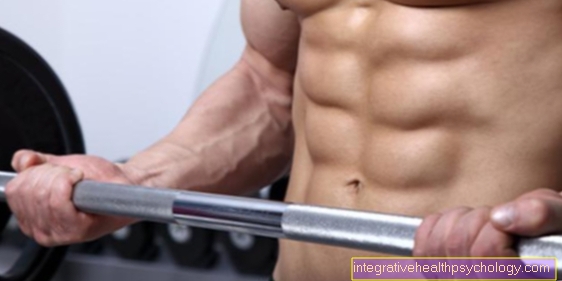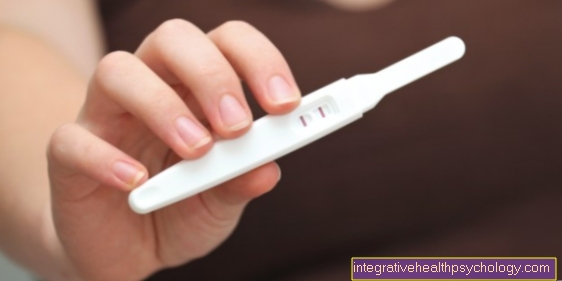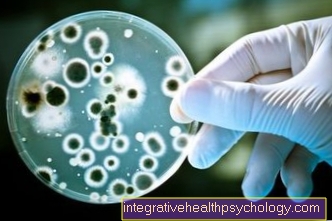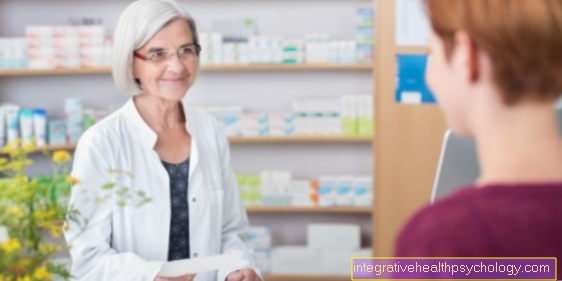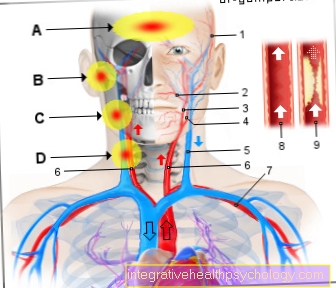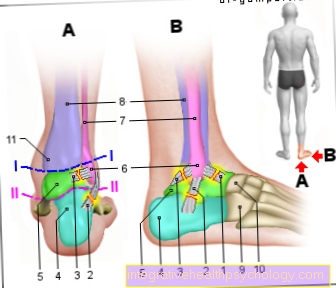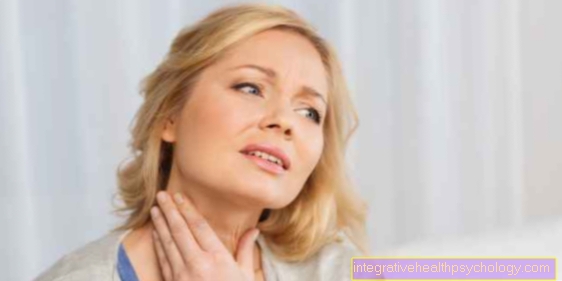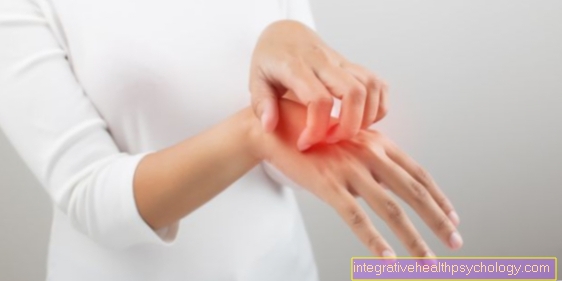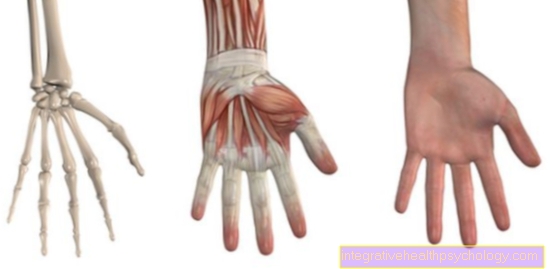Aging process in humans
introduction
In the course of life (approx. From the age of 25) the aging process begins. This is often the trigger for many people to want to stay young or look a little younger again:
Aging cannot be stopped or reversed, but the right measures can be used to slow it down.
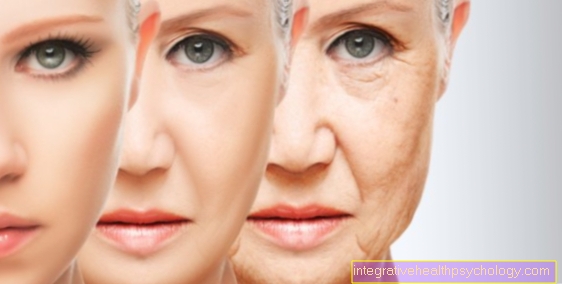
Why do we age
On the one hand, this is related to the two essential biochemical mechanisms of cellular aging:
- the aging of the cells
and also - the decrease in hormone production
On the other hand, individual risk factors and incorrect behaviors that accelerate the aging process still play a role:
- wrong diets
- one-sided eating habits
- the absorption of high amounts of energy through fat, protein, sugar and alcohol
- a disturbed acid-base balance
- radical diets
- Food combining
- Tobacco and alcohol
- professional and emotional stress
- too short and irregular rest and recovery times
- lack of sleep
- extreme competitive sport
- Hard physical work
- lack of exercise
What accelerates the aging process?
The aging process can be accelerated by various diseases. These are also known as aging diseases.
These include diseases of the digestive tract (for example):
- Gastric disorders, including gastritis or Zollinger-Ellison syndrome
- Diseases of the small intestine
- Crohn's disease
- Ulcerative colitis
And metabolic diseases like:
- Diabetes mellitus
- Obesity
- Vascular calcifications (arteriosclerosis)
- depressions
or - Dental disease
Hormonal changes (e.g. the menopause in women) are also negative factors that can drive the aging process forward.
Can you stop or reverse the aging process?
Unfortunately, the aging process cannot be stopped or reversed.
Everyone ages with the years. This not only refers to the external appearance, i.e. not only the first wrinkles on the face, but also other body parts.
Over the years, our organ function decreases, the composition of our vessels changes. These are becoming increasingly stiff. Our cells divide more and more slowly and hormones that protect our bodies are produced less and less.
You can think of it as a beloved piece of furniture: even if you always treat your sofa carefully, your sofa will not look like it did at the beginning after years. And vice versa, i.e. changing your sofa so that it looks new again, you can't either.
It is true that the aging process cannot be stopped, but aging can be delayed by following the right lifestyle with healthy diet and exercise.
It is also important to mention that aging can vary greatly from person to person. On average, this begins at the age of 25, but it can also begin at puberty or only from the age of forty.
Further information on this topic can be found at: How can you stop the aging process?
How can you slow down the aging process?
The aging process can be slowed down by avoiding factors that cause cell stress. Why?
Cell stress releases free radicals. These radicals harm our body. They cause inflammation, damage our organs and make us age faster.
In the following, factors are listed that can trigger cell stress and should therefore be considered:
- Smoke
Smokers age much faster. You should therefore stop smoking or smoke as little as possible.
Find out more at: How to quit smoking - alcohol
Alcohol in large quantities damages the liver, the brain and also the pancreas. You should therefore keep your alcohol consumption as low as possible, at best even completely avoid alcohol. Red wine is an exception. Small (!) Amounts of red wine can slow down the aging process.
Read more about this at: These are the consequences of alcohol - sleep
Sleep deprivation creates significant stress in your body. You should therefore sleep at least seven hours at a time and not constantly change your sleep rhythm.
Further information on this topic can be found at: These are the consequences of lack of sleep!
- Move
Little sport accelerates the aging process. With enough exercise, you can keep fit longer. It is sufficient here if you do exercise for 30 to 60 minutes about twice a week.
Read more about this at: Health and sport - nutrition
The role of nutrition should not be underestimated, as many vitamins that our body needs can be absorbed with nutrition. In addition, the diet has an antioxidant effect: This means that a healthy diet can counteract radicals and thus protect against cell stress. A healthy diet includes plenty of vegetables and fruit. In addition, it should be rich in nutrients and fiber.
Read more at: Anti aging and nutrition
- water
A sufficient water content of 2-3 liters is very important for your kidney function. Hence, you should pay attention to it. - Everyday stress
Stress also affects your body in the form of cellular stress. You should therefore try to avoid stress as much as possible.
Further information on this topic can be found at: This is how you can reduce stress! - Hormones
The hormonal function in our body decreases with age, but our lifestyle also has an impact on our hormonal balance. Stress, avoidance of sunlight, and lack of sleep all decrease hormone production. So be sure to control these factors. Because hormones have a protective effect on our body.
For further general information we recommend our main page: These hormones are there!
Find out more at: How can you stop the aging process?
How does smoking affect aging?
Smoking is one of the most serious factors that accelerate aging.
Studies show that consuming more than 10 cigarettes a day reduces life expectancy by seven to nine years. Smoking leads to many secondary diseases:
It triggers cell stress, which releases radicals that damage our vessels and organs. Our blood vessels harden. This can lead to a heart attack or stroke much faster. In addition, nicotine damages our lungs, which in turn leads to other lung diseases such as Lung cancer or COPD.
You should therefore urgently quit smoking. It's never too late for that! Even with a cessation of smoking aged 55 and over, up to six years of life can be gained!
Read more about this at:
- These are the consequences of smoking!
- How can I stop smoking?
How does exercise affect aging?
Those who do sport regularly and above all train their endurance (e.g. by jogging or swimming) stay young longer.
Studies have shown that exercise can reduce biological age by up to 15 years!
It is sufficient if you engage in physical activity for about 30 to 60 minutes two to three times a week. This will help protect your cells and cell aging, and slow down aging. It's never too late to start exercising.
We have important information for you on our main health page: Health and sport
What influence do vitamins have on aging?
The most important vitamins in the process of aging include:
- Vitamin D
It has several important functions that our body needs, especially in old age. It supports the absorption of iron from the intestines. Iron, in turn, is important for the formation of red blood cells.
In addition, vitamin D strengthens bone structure. This is very important because as we get older, our bones get softer. Bone fragility (osteoporosis) increases. - vitamin C
It plays an important role in strengthening our immune system. It is also involved in the structure of our connective tissue. It supports collagen formation, which can slow down our skin aging. - vitamin B
With increasing age, B vitamins can no longer be absorbed sufficiently independently. However, your role is very important.
Vitamin B12 and folic acid support our memory and retention. If the B vitamins are deficient, Alzheimer's disease or depression can develop more easily.
For more information on the importance of vitamins, see: Vitamins - You Need These!
How do hormones affect aging?
The production of hormones decreases with age.
The following are hormones that have important effects on the aging process:
- DHEA (dehydroepiandrosterone)
This hormone belongs to the male sex hormones and is a precursor from which other important hormones are formed. Women also have this hormone. Studies show that DHEA slows down the process of getting older, keeps you young, and increases lust for life and libido. It is also an antagonist of the stress hormone cortisol. With increasing age, the formation of DHEA decreases, which can reduce youthfulness. - HGH (Human Growth Hormone, Somatotropin)
It is a growth hormone. The production of this hormone decreases sharply with age, and the role of HGH in the process of aging becomes more and more important. Studies show that HGH is involved in the renewal of cells as well as in other metabolic processes. Therefore, make sure that you do not consume too many carbohydrates, especially in the evening. The HGH level is additionally lowered by the resulting insulin release. - Melatonin
This hormone regulates our day and night rhythm. It ensures that we fall asleep easier and sleep better through the night. In addition, many metabolic processes are downregulated by the melatonin production. It also works against cell stress. This is also called an antioxidant effect. In this way it is an important hormone in slowing down aging. - Estrogen and testosterone
In women, estrogen and other sex hormones drop significantly with the onset of menopause. In men, on the other hand, testosterone does not drop as quickly or as much. The sex hormones both play important roles in strengthening bones. Testosterone in particular plays an important role in sexual desire, vitality and muscle strength.
Further general information can be found on our main page: These hormones are there!
Features of the aging process on the face
The aging process in the face is essentially determined by two factors ..
1. Internal factors
These are genetically determined.
- Changed composition of our skin components
With increasing age, the composition of the tissue layers in our skin changes. The proportion of collagen and elastin decreases, and less of the body's own hyaluronic acid is formed. As a result, our skin becomes thinner, loses its elasticity and becomes increasingly dry. - Relocation of body fat on the face
The fat distribution on the face changes with age. This allows the structures of the bone that lie under the fat to appear more pronounced. The first wrinkles are visible. - Decreasing bone mass in the face
There is also a reduction in bone mass in the face. Since the fatty tissue and the tissue layers of our facial skin are underlaid by the bone, they can no longer be adequately supported. This causes a reduced tightening of the skin. It comes to wrinkles.
2. External factors
These are factors that we can influence. They build on the internal factors.
- UV radiation
This is the factor that accelerates skin aging the most. A lot of sun exposure and regular visits to the solarium destroy the elastin fibers in the skin. The skin loses its elasticity. - Smoke
Smoking reduces blood flow to the skin. The skin is less able to renew itself. It also damages the skin's collagen and elastin fibers. Ultimately, the skin sags earlier. - Lots of coffee and tea
These are drinks that drain our bodies through the urge to urinate. In this way, the skin appears much more slack and ages faster. You can help this a little by also drinking a glass of water after drinking coffee or tea. - Insufficient fluid intake
If you drink too little, this mainly affects the elasticity of your facial skin. Your skin becomes increasingly dry and is no longer as elastic as usual. Wrinkles appear.
More about this topic can be found: Skin aging - these are the causes!
You might also be interested in:
- Anti-aging on the skin - how to stay young!
- This is how you can prevent wrinkles!
How do I find the right anti-aging cream on the face?
A good anti-aging cream should contain the following ingredients:
- Hyaluronic acid
This is normally produced by our body independently and represents a very important supply of fluid for our skin. As the body's own hyaluron formation decreases with age, it should be supplied from the outside through creams. After all, there is a lot of fluid required for young looking skin. - Vitamin A
Studies have found that vitamin A can help reduce wrinkles. It is involved in the regulation of the skin, helps in the formation of keratin and collagen, supports cell division and works against cell stress.
Other vitamins that can be helpful: vitamin E, provitamin B5 - Matrixyl 3000
This is a specially developed active ingredient that is supposed to support the formation of the skin tissue layers. In this way, it has a cushioning effect on the wrinkles. - Vegetable oils
If you have dry skin, fats can be very helpful in anti aging. They ensure that the skin becomes smoother and can counteract cell stress.
The following are recommended: aloe vera, ginseng, reishi mushroom, fruit and algae extracts, papaya extracts
Find out more on our website:
- Anti-aging on the skin - how to stay young!
- This is how you can prevent wrinkles!


